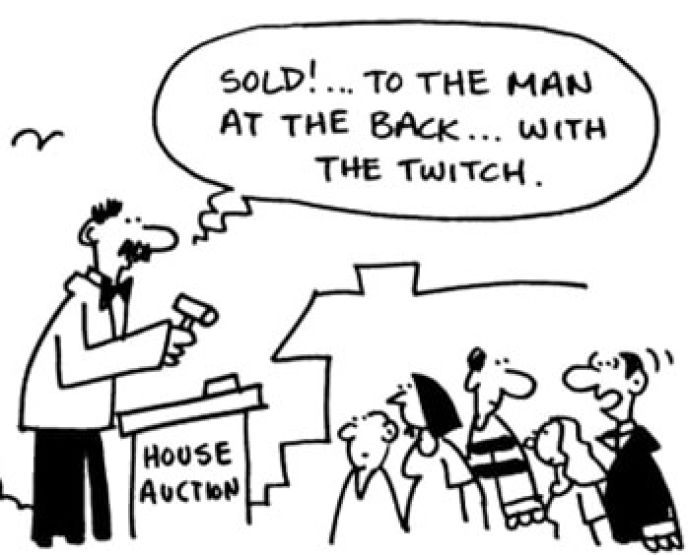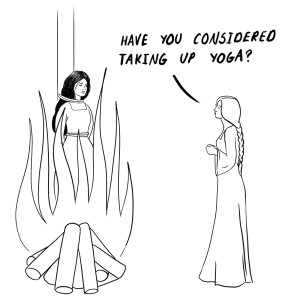
Where are we?
'I swear it isn't true' blogger reflects on the TS awareness journey.
We have just finished Tourette’s Awareness Month and I thought this would be a good time to reflect on where we actually are with Tourette’s understanding. Each year many people with Tourette’s and those working with charities like Tourette’s Action UK work hard to raise awareness and try to reduce the misconception and stigma surrounding the condition.
I’ve lived with Tourette’s for around 30 years and I’ve been writing, doing media work and fundraising for the last 8 years. There’s definitely been a lot more coverage and conversation over that time. In that regard, there’s been success in raising awareness. When I was first diagnosed, hardly anyone had heard of Tourette’s. When I started writing about it, it had already become part of popular culture due to media portrayal and mentions in entertainment. Now most people have heard of it, especially due to increasing coverage on social media and more people with Tourette’s sharing their experiences.
So why do we still need awareness days and months? Well, awareness of the existence of Tourette’s doesn’t equal understanding. It remains one of the most misunderstood and misrepresented conditions around. The hard work done by charities and the efforts of people sharing their stories can quickly be set back by ill-judged tweets or poorly thought out TV shows.
Too much interest from the media still seems cynical. It’s an angle, it can entertain but ratings come before painting a clear picture of Tourette’s. It’s not an easy picture to paint even if intentions are positive. People with Tourette’s can have wildly different experiences to each other. Their own experience can vary week to week, month to month and year to year. Mine has taken on so many forms and generally worsened with age. Tics come and go, some return with a vengeance. Showing this experience in a short video would be impossible, let alone highlighting how different it is across life stages and circumstances.
We need to keep raising awareness because understanding is so limited. People see tiny glimpses of Tourette’s, whether on TV, social media or with someone they know. You’re likely getting a snapshot, often at a time the person is feeling capable of socialising. This is partly why Tourette’s videos and TV shows, including some I’ve been in, always receive the same comments on social media. “It’s so fake”, “they aren’t even swearing”, “can’t even tell if they’ve got it”, “why are they all so good looking?”. That last one isn’t really relevant but I liked it.
On the way to film my first Tourette’s TV programme, my tics were severe all the way there. When near the studio, a guy sat on the floor outside a shop started shouting and swearing at me, in a very recognisably Tourette’s way. Not having coprolalia myself, I then walked to the studio feeling like a fraud. Two minutes later that same guy walked in and I realised he’d be filming with me. After initially wondering if I had Tourette’s at all, he quickly noticed the tics. It can be quite confusing when the anxiety of not ticcing enough in a studio filming a Tourette’s documentary makes you start ticcing, then you’re not even sure if you’re doing it deliberately or not.
During filming I put everything into not ticcing. That might not seem the best approach to a Tourette’s film, but that’s basically my autopilot after so many years. When talking to people or being watched, that autopilot works overtime. In the breaks from filming, the tics came out again. On the way home, the tics came out again. Yet during the film nothing was very noticeable, so the comments tended to question whether I had it or if it was even real. This tends to be the way. People either show clear tics on camera and are accused of being over the top and fake, or don’t show enough and are assumed to not have it, or that it’s mild and not much of a problem. Raising real awareness is difficult when there’s such an emphasis on what people see, or don’t see in a short, unrepresentative period of time.
It’s great that there’s more people sharing their experience on social media and making short films, but I still feel there’s a real lack of in-depth coverage. Short-form video has become the norm regardless of topic, but it doesn’t really get the whole story across with a complex, varied neurological condition. Ideally we need documentaries that follow a variety of people with Tourette’s across different life stages. If we want to reach larger audiences, there will also need to be more representation in fiction.
There remains an issue with the commissioning of TV shows that cover Tourette’s. It’s still an easy angle for reality shows and dating shows in particular. Sometimes it’s a decent portrayal but it’s still just a snapshot used for entertainment. The real difficulty comes with Tourette’s centric shows that still lean into coprolalia as entertainment. My F-ing Tourettes Family isn’t a helpful title for a show, but it’s little surprise with titles like Obsessive Compulsive Cleaners and The Undateables. I quite liked The Undateables, but let’s not pretend the title doesn’t frame the narrative for many viewers. Also, I once received an email asking me to be on The Undateables while I was on a date. Last year we were treated to Britain’s Tourette’s Mystery on Channel 4. The main mystery being how little research you can do and still get broadcast. I didn’t think we’d have to explain that Tourette’s isn’t contagious and you can’t get it from watching TikTok. Unfortunately, with such big audiences, it’s very easy to undo the positive work many have done in raising real awareness.
Whether it’s Tourette’s or mental health, there is an issue with the need to focus on positive, inspiring stories. I’ve spoken to several people involved in awareness projects in the past who have been put off by what can come across as toxic positivity. It’s great that there are inspiring stories out there and people with Tourette’s have achieved many amazing things. It’s just not realistic to try and be positive and inspiring all the time. It becomes quite cynical when TV producers and publishers only want this angle. It also does Tourette’s awareness zero favours if people all seem like they’re thriving and saying “it’s great, it’s a superpower”. To clarify, I don’t feel like I have a superpower. Unless you want an Avenger who’ll get in the way then punch himself in the face.

In one programme I did make it onto, amongst many questions we were asked if we’d get rid of Tourette’s if we had the choice. The way it was asked and the tone of the show clearly wanted a “no, I wouldn’t change it”. One person said “I’d love to get rid of it, it’s exhausting”, but that didn’t make it into the show. Overall I’m glad I had it and learned a lot from those experiences, but I’d get rid of it in a heartbeat now. Well, ideally five years ago. I’d learned enough by then and rather have missed some of the pain. When Tourette’s takes up the vast majority of your attention and energy every day, it just doesn’t leave that much for other things. I’m proud of things I have done, but for long periods managing my health alongside a full time job is too draining.
When trying to pitch books on Tourette’s, multiple publishers were focused on how it could be an inspiring story of overcoming the condition, or how it could be a toolkit to coping with it. Personally, I think there’s a lot of value in reading other people’s accounts of difficult times and knowing you’re not the only one going through it. As for toolkits for coping, I wouldn’t know what to suggest to people. I’ve been working on that my whole life with mixed results and it will vary so much from person to person. Ultimately we just need proper medical support. Raising awareness and understanding is a massive positive, but people need faster diagnosis and access to support from specialists in Tourette’s and associated disorders.
It still only takes one stupid comment from someone famous and you can see how much more work is needed to properly raise awareness. It always follows the same pattern. Someone makes a very tired, lazy joke equating Tourette’s with swearing or vocal outbursts, a few people with Tourette’s or charities point out it’s really unhelpful and damaging. Then the narrative shifts to “everyone’s offended, you can’t say anything”. I’ve never been offended by any of it, my response is always exhaustion. All the effort of so many people to raise awareness, yet still the same tired stereotypes. There’s a lot of comedic material you can mine with Tourette’s, so it would at least be nice to have some originality.
One celebrity used Tourette’s as an excuse when apologising for something offensive they’d said. They didn’t have Tourette’s. It was just used as a jokey reason for not thinking through their comments and causing offence. It’s become a default term for outbursts or saying the wrong thing amongst many people. Somehow that even includes writing the wrong thing. This blog is not a tic. The worst I’ve done in that regard is twitching on WhatsApp and sending inappropriate emojis and stickers. And thumb tics causing accidental matches on dating apps.
So are things getting better? Well, lack of NHS funding and support is limiting that a lot. It can still take years to see a specialist and funding is also lacking for research into new treatments. In terms of awareness, quality is going to be more important than quantity. Too much time and effort is still spend undoing the use of tired stereotypes and misinformation. There has been a lot of progress, it’s just slower than most of us would like. Despite that, when was at school, no one knew what Tourette’s was. Now at least, it’s something people are aware of and there are resources to offer support. There’s more willingness to discuss neurological conditions and mental health issues, especially amongst younger people. That is a huge improvement and awareness days like this continue to play a role in more open discussion. Reading and sharing this helps raise awareness more, but if you’d like to help Tourette’s Action UK with vital donations, you can sponsor me for the London and Amsterdam marathons here.
Ade’s London & Amsterdam Marathons for Tourettes Action


